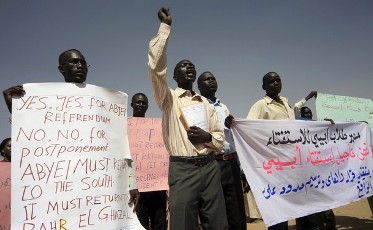Kiir urges Abyei negotiating team to cooperate with Sudan
November 7, 2022 (JUBA) – South Sudan’s President Salva Kiir on Monday urged the committee that is negotiating the final status of Abyei to cooperate with neighbouring Sudan, describing it as the best opportunity to end the dispute over the contested region.
The 10-member body, headed by Kiir’s security advisor, was formed on October 7.
The committee, is among other roles, tasked with negotiating with the government of Sudan in order to reach an amicable solution on the status of the oil-producing region.
South Sudan’s security advisor, Tut Gatluak Manime said the committee is expected to feed the South Sudanese leader with monthly updates on the progress of the negotiations.
“Gen. Salva Kiir Mayardit is a man of peace. He wants peace not only in south Sudan but also in the region. He has been playing a pivotal role in the current political situation in Sudan and has now empowered the team on Abyei to negotiate the final status in the spirit with which the 2005 comprehensive peace agreement which contains the Abyei protocol was negotiated,” he told Sudan Tribune on Monday.
The oil-producing border region of Abyei has been contested since South Sudan gained independence in 2011. The Area was accorded a “special administrative status” by the 2004 Protocol on the Resolution of the Abyei Conflict, known as, the Abyei Protocol.
Under the terms of the Protocol, the Abyei Area was declared part of the states of South Kordofan and Bahr el Ghazal and issues related to it were to be determined by the presidency, comprised of President Kiir and former Sudanese President Omar al Bashir.
After years of contentions between leaders in South Sudan and Sudan on who is eligible to vote in the referendum, the nine Ngok Dinka chiefdoms feel frustrated, with some blaming officials of the Sudan People’s Liberation Movement and the government under President Kiir of having failed to accept and endorse the 2013 community referendum.
The inaction persuaded many officials and leading personalities to float several proposals, with some advocating for self-rule under the protection of the United Nations.
Others had proposed that the disputed oil-producing region be established as a sultanate.
Activists and community leaders have used the Abyei Protocol in the 2005 comprehensive peace agreement and the ruling by the International Permanent Court of Arbitration, which proclaimed that only the Ngok Dinka tribe and permanent residents may vote. The Sudanese government wanted the nomadic Arab Misseriya tribe, whose cattle access pasture lands in Abyei annually, be accorded full voting rights.
Several inter-communal clashes between the armed Misseriya pastoralist tribe of Sudan and the Dinka Ngok of South Sudan have led to many civilian deaths in the last decade.
(ST)

